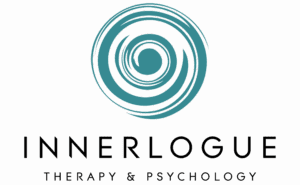Gottman Method Couples Counselling Therapy in Calgary
Every couple faces challenges—but how we respond to those moments can either pull us apart or bring us closer together. At Innerlogue Therapy in Calgary, we offer Gottman Method Couples Therapy to support partners in understanding each other more deeply, navigating conflict with compassion, and rebuilding connection that lasts. Whether you’re feeling emotionally distant, stuck in repeating arguments, or simply looking to deepen your bond, this evidence-based approach can help you move forward—together.

What Is the Gottman Method?
The Gottman Method is a research-based form of couples therapy created by Drs. John and Julie Gottman. Rooted in the Sound Relationship House Theory, it helps couples build the foundational elements of healthy relationships—like trust, shared meaning, emotional connection, and conflict management.
Rather than focusing on who’s “right” or “wrong,” this approach centers around strengthening the friendship at the heart of the relationship, improving emotional communication, and creating space for each partner to feel seen, heard, and valued.
At its core, the method aims to:
- Decrease harmful conflict patterns
- Increase intimacy and respect
- Remove emotional barriers
- Foster empathy, understanding, and connection
Therapists trained in this approach guide couples through personalized interventions designed to strengthen the relationship’s foundation.
Gottman Method Therapy can help with:
Reduces relationship conflict through effective communication and conflict resolution skills.
Improves emotional connection, fostering intimacy and mutual understanding.
Helps manage physiological stress responses during conflict (e.g., through self-soothing techniques).
Promotes healthy boundaries and mutual respect, which support emotional well-being.
Increases emotional attunement, helping partners better understand and validate each other’s feelings.
Encourages building a culture of appreciation and gratitude, reducing negativity and emotional distance.
Supports healing from past relationship injuries, which can reduce anxiety, depression, and resentment.
Teaches tools for managing life’s stressors together, increasing resilience and teamwork.
Improves problem-solving skills in daily life and within the relationship.
Creates a shared meaning in the relationship, supporting personal identity and emotional grounding.
How does Gottman Method work?
When you begin Gottman Method therapy at Innerlogue, we start with a thoughtful and structured process to understand your relationship. This includes:
- A joint session to explore your goals and challenges
- Individual sessions with each partner
- Research-backed questionnaires to assess relationship dynamics
This foundation allows us to tailor your therapy experience to your unique relationship, so the tools you learn feel relevant and applicable to your life together.
From there, sessions focus on practical skills-like how to communicate when emotions are high, how to express needs without criticism, and how to reconnect after distance or conflict.
The method emphasizes ongoing learning, allowing couples to apply their insights between sessions and carry them forward after therapy ends.

Common Relationship Patterns We Address
Couples seek Gottman Method therapy for many reasons. Some are navigating major life transitions, while others are healing from betrayal, rebuilding trust, or managing years of unresolved tension.
This method can be especially helpful for couples who:
- Are stuck in cycles of blame or defensiveness
- Feel emotionally disconnected
- Struggle to communicate their needs
- Want to rekindle intimacy or friendship
- Are preparing for marriage or facing parenting challenges
The Gottman Method is inclusive of all couples—regardless of gender, age, or relationship length. Whatever the circumstance, we meet you where you are—with empathy and tools that make a difference.

Recognizing the "Four Horsemen"
In their decades of research, the Gottmans identified four behaviors that can erode the foundation of a relationship if left unaddressed. These are called the Four Horsemen:
- Criticism – attacking your partner’s character rather than expressing a specific concern
- Defensiveness – responding to feedback with blame or excuses
- Stonewalling – withdrawing or shutting down during difficult conversations
- Contempt – expressing disrespect through sarcasm, eye-rolling, or mockery
In therapy, we gently help couples identify these patterns and replace them with healthier habits—like self-soothing, listening with curiosity, and repairing disconnection with care.
Building a Stronger Relationship with the Sound Relationship House
The Gottman Method is grounded in a clear framework that guides our work together. Here are a few key pillars:
- Love Maps: Staying in touch with each other’s inner world—what your partner is thinking, feeling, and dreaming about
- Fondness and Admiration: Regularly expressing appreciation and respect
- Turning Toward Each Other: Responding to everyday bids for connection, like small gestures or shared routines
- Managing Conflict Gently: Using softened start-ups, repair attempts, and mutual understanding
- Creating Shared Meaning: Building rituals, goals, and values that strengthen your bond over time
We know that change takes practice—and our role is to guide you through those changes with clarity and support.
Common Questions Regarding Gottman Method Therapy
1. Do we need to be in crisis to benefit from this therapy?
Not at all. While many couples seek therapy during times of stress or disconnection, the Gottman Method is also a powerful tool for strengthening a good relationship. Whether you want to improve communication, prepare for a life transition, or simply reconnect, therapy can offer valuable guidance and support.
2. Can this approach help with infidelity or betrayal?
Yes. Many couples recovering from betrayal have found the Gottman Method helpful in rebuilding trust and repairing emotional safety. Healing takes time, but this approach offers structured, research-backed steps to support that process.
3. What if only one of us wants to try therapy?
It’s completely normal for one partner to feel more ready than the other. If you’re unsure, starting with a brief 15-minute consultation can be a helpful, no-pressure way to ask questions and explore whether couples therapy feels like the right fit. It’s not a full session—just a chance to connect, learn more, and decide together how to move forward.
4. Will the therapist take sides?
No. Gottman-trained therapists create a safe, balanced space for both partners. The goal is not to assign blame, but to understand each person’s experience and support both of you in learning new ways to relate, communicate, and connect.
How Innerlogue Can Support You
At Innerlogue Therapy, our Calgary-based therapists are trained in couples therapy and use Gottman-informed strategies to help couples reconnect with empathy, purpose, and clarity.
Therapists offering couples counseling include:
Priscilla Lee, Lori Johnstone, Lizzie Smith, Christina Hong, Melanie LeBlanc, Emma McAlary, Danielle Topley, Hannah Reid, Jessica Won, Bozhena Fedynets, and Yuchen Zhong.
We invite you to book a free 15-minute consultation to explore whether Gottman Method therapy is the right fit for your relationship.
You can also view our full team here to learn more about each therapist and find the right match for your needs.
Contact Us
References
Gottman Institute. (n.d.). About the Gottman Method. https://www.gottman.com/about/the-gottman-method/
Gottman Institute. (2020, February 3). An introduction to the Gottman Method of relationship therapy. https://www.gottman.com/blog/an-introduction-to-the-gottman-method-of-relationship-therapy/
Psychology Today. (n.d.). The Gottman Method. https://www.psychologytoday.com/ca/therapy-types/the-gottman-method
Relational Psych. (2023, April 21). An introduction to Gottman couples therapy. https://www.relationalpsych.group/articles/an-introduction-to-gottman-couples-therapy
Verywell Mind. (2023, January 24). What is the Gottman Method? https://www.verywellmind.com/what-is-the-gottman-method-5191408



